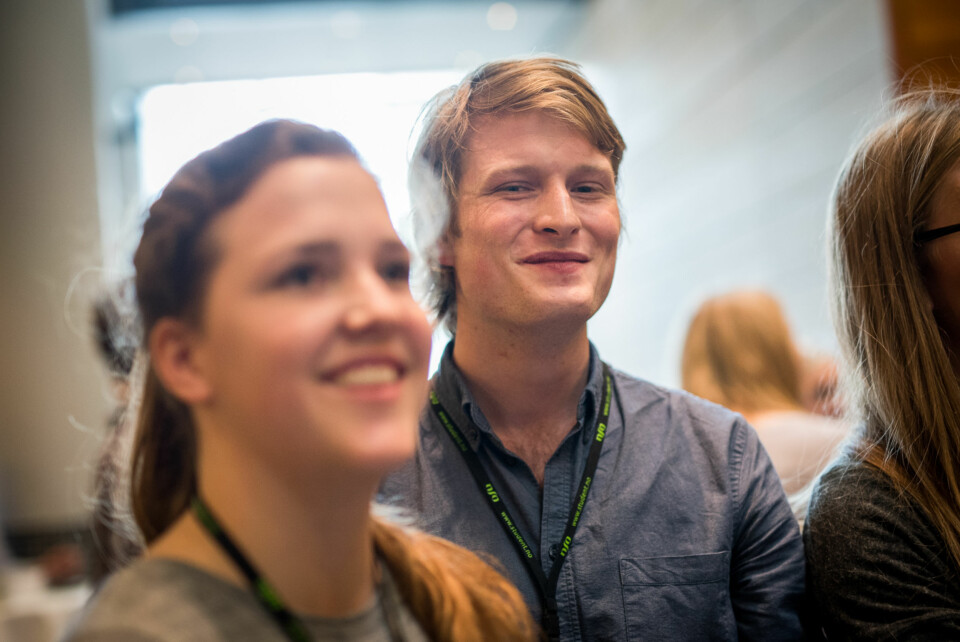
International students want more funding
The International Students’ Union claims to not have the resources to fulfill their duties, while the ministry believes the job they are doing is excellent.
OBS! Denne artikkelen er mer enn tre år gammel, og kan inneholde utdatert informasjon.
— I had to drop out of two courses, and I am trying hard to complete one of them now, says Abraham Vysocky, National President of the International Students’ Union of Norway (ISU).
He claims that he in his thirty per cent position, along with his four board members in ten per cent positions, are not able to fulfill their responsibilities.

— We have an increasing number of international students in Norway, and specific duties both nationally and in favor of our 27 branches, he says adding that they have an increasing number of branches on universities and university colleges all over Norway.
The significant increase is not enough
We should not have to choose between our duties and studying.
Abraham Vysocky
ISU is one very important organization in regards to this, as reflected in their 140 per cent increase in funding over the last five years.
Magnus Thue
— We do not have enough resources and it should not be like that. We should not have to choose between our duties and studying, Vysocky says (pictured).
ISU is funded directly from the Norwegian Ministry of Education and Research.
Political adviser Magnus Thue with the ministry says that ISU has seen a significant increase in funding from 2011 to today. From 2011 to 2015 their funding has increased from 500.000 to 1,2 million kroner.
— This reflects the increasingly important role of ISU and internationalization in Norwegian higher education, and the ministry is under the impression that ISU is doing an excellent job with international students’ welfare, he says.
A tricky role
— Is it impossible for ISU to get funding through the voluntary semester fee solution that SAIH uses?
— The Act on student welfare bodies (studentsamskipnadsloven) allows for a voluntary fee, additional to the regular semester fee. Any means collected are to proceed to student-based international aid. ISU falls outside the scope of this provision.
Thue says that the government is working towards increased internationalization in higher education through a wide array of measures.
— ISU is one very important organization in regards to this, as reflected in their 140 per cent increase in funding over the last five years, he concludes.
Possible through the welfare councils
— The semester fee is embedded in Norwegian law, there is no opening for adding other organizations than Norwegian Students’ Union (NSO) and SAIH per now, confirms International Officer in NSO, Helge Schwitters.
He says that ISU is however able to apply for funding through the welfare councils.
— Should the ministry consider increasing ISU’s funding?
— It is important that student organizations have the capacity to do their work well, responds Schwitters.

He continues saying that NSO represents all students, including international students in Norway:
— We do not want to make a superficial divide. However, international students face certain special circumstances and we see it as more of a union representing a subgroup of students and their specific needs and interests, similar to the teacher students’ and the medical students’ unions.
— The difference is that they are parts of bigger labour unions, and it is easier for them to get funding there. ISU doesn’t have that, and that is a challenge, he says.
In 2015 ISU had about 48 kroner in funding per student they are representing, while NSO has 32 kroner per student. Meanwhile the Education Students in the Union of Education Norway (Pedagogstudentene) has about 400 kroner per member.






Logg inn med en Google-konto, eller ved å opprette en Commento-konto gjennom å trykke på Login under. (Det kan være behov for å oppdatere siden når man logger inn første gang)
Vi modererer debatten i etterkant og alle innlegg må signeres med fullt navn. Se Khronos debattregler her. God debatt!